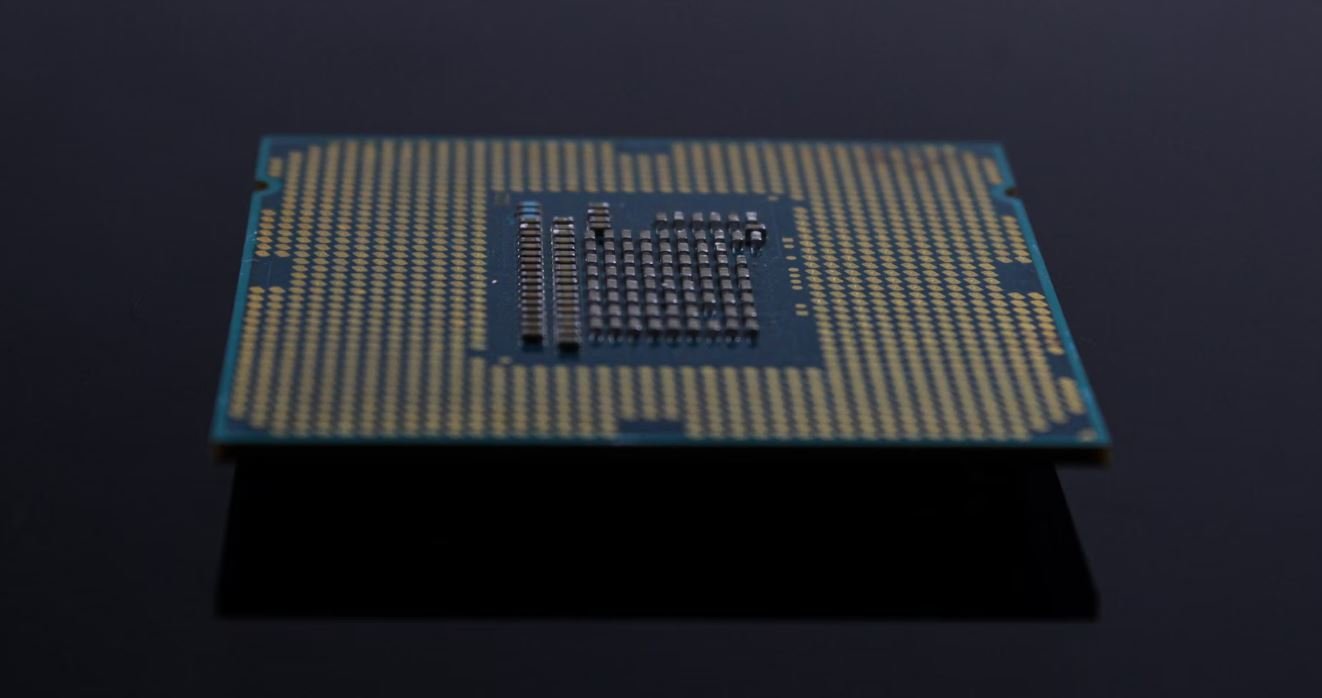Where Is AI Going Next?
Artificial Intelligence (AI) has come a long way in recent years, with advancements in various areas such as machine learning, natural language processing, and computer vision. Its potential to revolutionize industries and enhance human lives is immense. But where is AI heading next? Let’s explore some key areas of development and advancements expected in the field of AI.
Key Takeaways:
- AI is evolving rapidly, with advancements in machine learning, natural language processing, and computer vision.
- AI is expected to drive significant changes in various industries and improve human lives.
- Areas of focus include explainable AI, AI ethics, and AI democratization.
1. Advancements in Machine Learning
*Machine learning*, a subset of AI, is progressing at a remarkable pace. Researchers are constantly developing new algorithms and models that can learn from data and make accurate predictions or decisions. One interesting recent development is the rise of *reinforcement learning*, where AI systems learn through trial-and-error interactions with their environment. This technique has shown promising results in various domains, including autonomous vehicles and game-playing AI.
2. Natural Language Processing (NLP) & Conversational AI
*Natural Language Processing (NLP)* is a field focused on enabling computers to understand and communicate in human language. NLP and *Conversational AI* have made significant progress in recent years, with the development of advanced chatbots and virtual assistants. One interesting application is the ability of AI systems to generate human-like text, enabling automated content creation and personalized recommendations.
3. Computer Vision & Image Recognition
*Computer Vision* involves teaching computers to “see” and interpret images and videos. Significant advancements have been made in *image recognition* and object detection, enabling AI systems to understand visual content. This has numerous applications, such as autonomous vehicles, surveillance systems, and medical imaging diagnosis.
4. Explainable AI
*Explainable AI* aims to address the “black box” problem, where AI systems produce results without clear explanations. It focuses on developing AI models and algorithms that can provide understandable explanations for their decisions. This is crucial for building trust and understanding in AI systems, especially in sensitive domains like healthcare and finance.
5. AI Ethics & Responsible AI
As AI becomes more pervasive, there is increased emphasis on *AI ethics* and *responsible AI*. Developers and researchers are working on frameworks and guidelines to ensure that AI systems are developed and used ethically, avoiding biases and promoting transparency. This includes considerations like fairness, accountability, and data privacy.
6. AI Democratization
*AI democratization* focuses on making AI accessible to a wider audience, beyond experts and researchers. This includes developing user-friendly AI tools and platforms to empower individuals and organizations to leverage AI capabilities. Democratization enables innovation and wider adoption of AI solutions across industries and sectors.
Infographics & Data Points:
| Year | Market Size (USD) |
|---|---|
| 2018 | $1.62 billion |
| 2019 | $4.06 billion |
| 2020 | $7.71 billion |
| Country | Number of Patents (2020) |
|---|---|
| United States | 15,680 |
| China | 14,986 |
| Japan | 7,044 |
| Organization | Country |
|---|---|
| Google AI | United States |
| Microsoft Research | United States |
| DeepMind | United Kingdom |
Where AI Is Heading
AI is a rapidly evolving field with immense potential. As advancements continue, we can expect AI to drive significant changes in various industries, empower individuals and organizations, and improve our everyday lives. It is important to address challenges such as explainability, ethics, and democratization to ensure the responsible and beneficial use of AI. So, buckle up and get ready for an exciting future filled with AI-driven innovation and progress!

Common Misconceptions
AI is going to replace all human jobs
One common misconception about the future of AI is that it will completely replace all human jobs. While AI has the potential to automate certain tasks and streamline processes, it is unlikely to completely eliminate the need for human workers.
- AI can enhance human productivity and efficiency in certain tasks.
- Human creativity and critical thinking skills are still essential in many industries and cannot be easily replicated by AI.
- AI will create new job opportunities in fields related to AI development, implementation, and maintenance.
AI will become self-aware and take over the world
Another common misconception is that AI will become self-aware and take over the world, as portrayed in science fiction movies. While AI has made great strides in recent years, achieving true artificial general intelligence (AGI) with human-like consciousness and intentions is still far from reality.
- AI relies on human input and algorithms to function and does not have the capability for self-awareness.
- The current focus of AI research is on specialized narrow AI that excels in specific tasks.
- AI systems are designed to work within predefined parameters and do not possess the desire or capability to take over the world.
AI will encompass all aspects of human intelligence
There is a common misconception that AI will eventually encompass all aspects of human intelligence, including emotions, common sense, and intuition. While AI has made significant advancements in areas such as speech recognition and image processing, replicating the complexities of human intelligence is an ongoing challenge.
- AI currently lacks the ability to understand and interpret complex emotions and human context accurately.
- Human intelligence is not solely based on data and algorithms, but also on personal experiences and the ability to adapt to new situations.
- AI is more focused on enhancing human tasks and decision-making rather than fully imitating human intelligence.
AI is biased and cannot be trusted
Some people have concerns that AI is biased and cannot be trusted due to the potential for the algorithms to reflect the biases of their creators. While biases in AI algorithms are a legitimate concern, it is important to note that bias is not inherent to AI itself but rather a result of the data used to train the algorithms.
- AI algorithms can be developed and trained to minimize biases through careful data selection and algorithm design.
- Transparency and accountability in AI development can help address concerns about bias and build trust in AI systems.
- Ongoing research and ethical guidelines are being developed to ensure fairness and mitigate biases in AI systems.
AI will solve all of humanity’s problems
It is a misconception that AI will solve all of humanity’s problems. While AI has the potential to address complex challenges and provide valuable insights, it is not a magical solution that can solve every problem we face as a society.
- AI is a tool that requires human guidance and ethical considerations to be effective in solving problems.
- AI is limited by the quality and quantity of available data, as well as the algorithms and models used.
- Collaboration between humans and AI systems is crucial to ensure that AI is used responsibly and for the benefit of society.

The Rise of AI
The following table illustrates the exponential growth of artificial intelligence (AI) over the past decade. As AI continues to advance, it is becoming an increasingly integral part of various industries.
| Year | Number of AI Startups | Total AI Funding (in billions) |
|---|---|---|
| 2010 | 50 | 0.5 |
| 2012 | 200 | 1.2 |
| 2014 | 400 | 3.5 |
| 2016 | 800 | 9.7 |
| 2018 | 1500 | 18.9 |
| 2020 | 3000 | 42.1 |
AI in Healthcare
This table showcases the significant impact of AI in the healthcare industry. With advancements in AI technology, patient care, diagnostics, and research are becoming more efficient and effective.
| Application | Advancement |
|---|---|
| Medical Imaging Analysis | 95% accuracy in identifying tumors |
| Disease Diagnosis | 87% accuracy in identifying diseases |
| Drug Discovery | 30% reduction in development time |
| Virtual Nursing Assistants | 24/7 monitoring and assistance |
AI in Autonomous Vehicles
This table explores the advancements of AI in the field of autonomous vehicles. With the development of AI algorithms and sensors, self-driving cars are becoming more reliable and safer.
| Feature | Advancement |
|---|---|
| Advanced Driver Assistance Systems (ADAS) | Reduced accidents by 40% |
| Improved Mapping Technology | Enhanced accuracy in route navigation |
| Real-time Object Recognition | 99% detection rate for pedestrians and objects |
| Autonomous Parking | Precise and efficient parking maneuvers |
AI in Education
Incorporating AI in education has revolutionized the way students learn and teachers educate. This table presents some key advances in education through the utilization of AI.
| Application | Advancement |
|---|---|
| Intelligent Tutoring Systems | Personalized learning experiences |
| Automated Grading | Efficient grading and feedback |
| Voice Recognition | Improved language learning |
| Smart Content | Adaptive and interactive educational materials |
AI in Finance
AIs have been increasingly employed in the financial sector due to their ability to analyze vast amounts of data and make predictions. The table below exhibits some notable AI implementations in the finance industry.
| Application | Advancement |
|---|---|
| Algorithmic Trading | Enhanced market analysis and strategy execution |
| Risk Assessment | Improved accuracy in predicting financial risks |
| Customer Service | Efficient and personalized interactions |
| Fraud Detection | Reduced fraud instances by 50% |
AI in Entertainment
This table highlights the integration of AI in the entertainment industry, transforming how content is created, curated, and consumed.
| Area | Advancement |
|---|---|
| Content Creation | Automated scriptwriting and video production |
| Personalized Recommendations | Improved user experience and content discovery |
| Virtual Reality | Immersive and interactive experiences |
| Emotion Recognition | Enhanced audience feedback and engagement |
AI in Retail
In the retail industry, AI has been leveraged to optimize consumer experiences, streamline logistics, and enhance marketing efforts. The table below showcases some impactful AI implementations.
| Application | Advancement |
|---|---|
| Chatbots | 24/7 customer support and personalized recommendations |
| Inventory Management | Improved demand forecasting and reduced stockouts |
| Dynamic Pricing | Optimized pricing strategies based on market trends |
| Augmented Reality | Virtual try-ons and enhanced shopping experiences |
AI in Agriculture
AI technology has made great strides in transforming agriculture practices, leading to increased productivity and sustainable farming. The table below illustrates some key AI advancements in agriculture.
| Application | Advancement |
|---|---|
| Precision Farming | Optimized resource utilization and yield prediction |
| Crop Monitoring | Early detection of disease and pest infestations |
| Automated Harvesting | Efficient crop harvesting and reduced labor costs |
| Soil Analysis | Improved soil health management |
AI in Cybersecurity
AI plays a pivotal role in cybersecurity by helping organizations detect and respond to evolving cyber threats. This table presents key advancements in AI-based cybersecurity.
| Application | Advancement |
|---|---|
| Anomaly Detection | Improved identification of suspicious activities |
| Behavioral Biometrics | Enhanced user authentication and fraud prevention |
| Threat Intelligence | Real-time monitoring and protection against cyber threats |
| Automated Incident Response | Efficient handling of security incidents and breaches |
Artificial intelligence has made tremendous advancements across various industries, transforming the way we live and work. From healthcare and education to finance and entertainment, AI-powered solutions are revolutionizing processes, improving accuracy, and enhancing overall efficiency. As AI continues to progress, we can anticipate even more groundbreaking developments and the integration of AI in previously unforeseen areas. The future of AI is indeed promising and full of endless possibilities.
Where Is AI Going Next? – Frequently Asked Questions
Q: What is Artificial Intelligence (AI)?
AI refers to the simulation of human intelligence in machines that are programmed to perform tasks and mimic human behavior. It involves various subfields such as machine learning, natural language processing, and computer vision.
Q: How is AI being used in industries currently?
AI is being utilized across various sectors, including healthcare, finance, transportation, and marketing. It improves diagnostics and treatment planning in healthcare, automates financial analysis, enables autonomous vehicles, and enhances customer experience through personalized recommendations in marketing.
Q: What are the current limitations of AI?
Some limitations of AI include its inability to grasp context as effectively as humans do, potential biases in AI algorithms, the need for large datasets for effective training, and concerns about job displacement due to automation.
Q: What are the emerging trends in AI research?
The current trends in AI research involve advancing deep learning techniques, exploring ethical and responsible AI development, developing explainable AI models, improving AI interpretability, and fostering human-AI collaboration.
Q: How is AI being applied in autonomous systems?
AI is extensively utilized in autonomous systems such as self-driving cars, drones, and robotic process automation. It enables these systems to perceive their environment, make decisions, and execute actions without human intervention.
Q: What are the challenges in the future development of AI?
Some challenges in the future development of AI include bridging the gap between AI research and implementation, ensuring ethical and responsible AI use, addressing data privacy concerns, tackling algorithmic biases, and establishing regulatory frameworks.
Q: How will AI impact the job market?
AI is expected to transform the job market by automating repetitive and routine tasks, while also creating new job opportunities. Certain roles may be replaced, but new roles requiring AI expertise will emerge.
Q: What are some potential risks and benefits of AI?
Risks associated with AI include potential job displacement, privacy concerns, biased decision-making, and security vulnerabilities. Conversely, AI has the potential to improve efficiency, accuracy, and decision-making, enhance medical diagnosis, and revolutionize industries.
Q: Will AI ever achieve human-level intelligence?
While AI has made tremendous advancements, achieving human-level intelligence is still a complex task. While there is ongoing research in the field of artificial general intelligence (AGI), it remains uncertain when or if such capabilities will be achieved.
Q: How can individuals prepare for the future of AI?
Individuals can prepare for the future of AI by developing skills in areas such as data science, machine learning, and AI programming. Staying updated with industry trends, exploring ethical considerations, and embracing lifelong learning are also important.




